Disability and Work in Canada 2020 Virtual Conference:
The Strategy in Action—Pathways and Impacts
Conference Speaker Bios

DISABILITY AND WORK IN CANADA 2020
Strategy-in-Action -- Pathways and Impacts
Virtual Conference – November 25 & 26 and December 1 & 2, 2020
The Disability and Work in Canada 2020 (DWC 2020) Conference was held virtually this year over four days in late November and early December (November 25 & 26 and December 1 & 2). The theme for this year’s conference was the “Strategy in Action—Pathways and Impacts”, with subthemes for each day as follows:
- Wednesday November 25, 2020 – The Big Picture--Challenges and Opportunities
- Thursday November 26, 2020 – Progress in the Workplace
- Tuesday December 1, 2020 – Strengthening Supports for Workers
- Wednesday December 2, 2020 – Moving Forward Together
Conference Speaker Bios
(listed alphabetically by last name)
Jump To:
A to D
Helen Anderson

Director, Information and Support
Arthritis Society
Bio: Dr. Helen Anderson is Director, Information and Support at the Arthritis Society. She oversees the development, implementation and evaluation of educational resources and tools to support people living with arthritis. Helen holds a PhD in Theory and Policy Studies in Education from the University of Toronto, with a focus on anti-discrimination education. In previous roles, Helen has worked collaboratively to remove barriers and improve access for persons with disabilities as Manager of Global Citizenship, Equity and Inclusion Programs at Centennial College and as Manager of Adult Education, Curriculum and Research at the equity education non-profit Harmony Movement.
Session: Strengthening Supports for Employees with Episodic Disabilities
Victoria Arrandale

Professor
University of Toronto, Dalla Lana School of Public Health
Bio: Victoria Arrandale is an Assistant Professor in the Dalla Lana School of Public Health at the University of Toronto and the Associate Director of the Occupational Cancer Research Centre. Dr. Arrandale’s research focusses on the measurement and prevention of workplace exposures. Her research has examined exposures in a variety of workplaces including mining, construction, nail salons and electronic waste recycling facilities. In collaboration with the CSA Group, Victoria led the team that wrote a rapid research report on reopening and operative workplaces during the COVID-19 pandemic.
Perrin Beatty
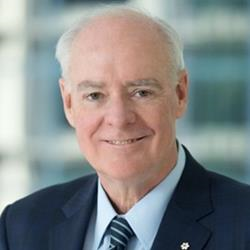
President and CEO
Canadian Chamber of Commerce
Bio: The Honourable Perrin Beatty, PC, OC, is the President and Chief Executive Officer of the 200,000- member Canadian Chamber of Commerce, Canada’s largest and most representative national business association. Before joining the Canadian Chamber in August 2007, Perrin held the same role at Canadian Manufacturers & Exporters (CME). A descendant of one of Canada’s most prominent manufacturing families, he grew up in Fergus, Ontario and graduated from the University of Western Ontario in 1971. Perrin was first elected to the House of Commons as a Progressive Conservative in 1972. During his 21 years in Parliament, he served as Minister in seven different portfolios, including Treasury Board, National Revenue, Solicitor General, Defence, National Health and Welfare, Communications and External Affairs. In 1994, Perrin joined a number of private sector boards and worked as a consultant in communications. In addition, he was an Honorary Visiting Professor in Western University’s Department of Political Science. From 1995 to 1999, he served as President and Chief Executive Officer of the Canadian Broadcasting Corporation. In keeping with his long-standing interest in education, Perrin served as Chancellor of the University of Ontario Institute of Technology from 2008 to 2015. He has received honorary Doctor of Law degrees from Western University, the University of Ontario Institute of Technology and Wilfrid Laurier University. Perrin is currently a member of the board of directors of Mitsui Canada and in 2018, he was made an Officer of the Order of Canada for his lifetime of public service and for his devotion to the development of our nation as a community leader and corporate visionary. In 2020, the Government of Japan awarded Perrin the Order of the Rising Sun, Gold and Silver Star, in recognition of his many distinguished achievements in international relations and advancements in Canada-Japan business relations.
Session: Joint Keynote: A fireside chat with Perrin Beatty and Hassan Yussuf
Neil Belanger

Executive Director
B.C. Aboriginal Network on Disability Society (BCANDS)
Bio: Neil Belanger has over 30 years of experience working within in Canada’s Indigenous and non-Indigenous disability and health sectors. For the past ten years, Neil has been the Executive Director of the British Columbia Aboriginal Network on Disability Society or BCANDS, an Indigenous disability organization holding Special Consultative Status with the United Nations. BCANDS provides a variety of programs and services relating to Indigenous disability across Canada. BCANDS work has been highlighted through numerous provincial, national and international awards and recognition, the most recent being the Zero Project International Award presented to the Society in Vienna, Austria, in 2019. In addition to his work at BCANDS, Neil serves in a variety of disability related advisory roles,
Session: Income Security for Persons with a Disability (Part 2)
Thomas Bergbusch

Senior Policy Analyst
ESDC
Bio: The Opportunities Fund for Persons with Disabilities program is a $40M per year contribution program that assists persons with disabilities who have limited or no attachment to the labour market prepare for, obtain and maintain employment or self-employment. The Opportunities Fund also works with employers to prepare workplaces for the integration of persons with disabilities and to raise the profile of persons with disabilities in the employer community. The program’s responsibilities include oversight of the performance measurement framework, providing strategic program policy advice on issues related to the labour market participation of persons with disabilities, undertaking forward-looking policy development to identify and address future programming needs, developing strategic partnerships, management of internal and external consultations and priority setting to launch the Call for Proposals. The program is led by Employment and Social Development Canada staff members, consisting of Khaddouj Souaid (Manager), Thomas Bergbusch (Senior Policy Analyst) and Renata Sharkey (Senior Policy Analyst), who are dedicated to increasing the participation of persons with disabilities in the workforce.
Max Brault
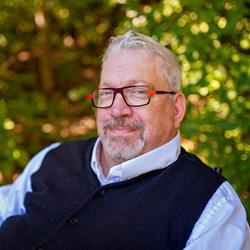
Vice President
BDO
Bio: Max Brault is Vice President of Accessibility Consulting Services and BDO’s National practice lead for Accessibility. Max has a vision to move Canada towards a barrier-free society by demonstrating to the world that Canadians with disabilities contribute to society and to successful business ventures. Max Alongside with the BDO team work together to identify accessibility issues in Canada – for corporations, governments and non-governmental agencies – and to provide strategic solutions to address them. Max is a bilingual Federal legislation and policy leader who had worked I the public service for 20 years across numerous government departments. His work has focused on employment equity, the advancement of workplace accessibility, and career development for people with disabilities. Max was instrumental in guiding the federal government toward new and progressive accessibility legislation, Bill C-81, the Accessible Canada Act (The Act). As a Senior Advisor in the federal public service, Max completed a two-year engagement exercise with Deputy Ministers and a broad range of other internal stake holders resulting in a success proposal for the Federal Employees with Disabilities task force. This provided the Clerk with vital resources and enabled them to enact Accessibility Legislation internally among public sector workplaces.
Session: Using the COVID-19 Recovery to Increase Employment of Persons with Disabilities
Jon Breen

Postdoctoral Fellow
University of British Columbia
Bio: Dr. Jon Breen, PhD, MSW, BA, is a Postdoctoral Fellow within the Faculty of Medicine at the University of British Columbia. Jon is the developer of the Co-Worker Acceptance of Disabled Employees (CADE) Scale, a self-report questionnaire that measures workplace attitudes toward disabled employees. He has also developed a new model of disability that proposes that attitudes, not information, inform the relationships between PWDs and others in the workplace. Earlier in his career, Jon was the owner/manager of a healthcare products manufacturer which employed only PWDs. He has also been the principal of a consultancy focused on issues of employment and disability. While living in the Yukon, Jon was the executive director of a supported employment agency for PWDs, and as a government manager of disability employment services. In 2013, Jon received the Queen Elizabeth Diamond Jubilee Medal for his community service work.
From Jon Breen: Contact Info and Publications (Nov. 26, 2020)
Session: Measuring Attitudes – Beyond the Business Case; Unpacking Artificial Intelligence Systems
Yin Brown

Past Chapter President and Project Director
Alliance for Equality of Blind Canadians, Toronto Chapter Member
Bio: Yin Brown is a disability inclusion advocate with more than ten years of community work experience. She has developed and implemented disability inclusive projects, in employment and violence against women. As a former Chapter president of the Alliance for Equality of Blind Canadians, she has led coalitions, campaigns, joint events and consultations to promote equal opportunities for people with disabilities. She developed the Inclusive Employment Advocacy Project that was implemented by and for persons with disabilities.
Jamie Burton
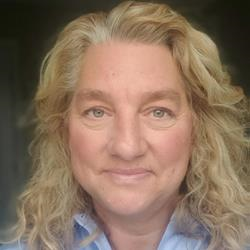
Chief Business Development Officer
CCRW
Bio: Dolphin is a communication technologies firm widely recognized for the use of technology to tackle social issues. Dolphin has led a fundamental transformation in the way we work by developing a virtual work environment capable of wealth creation and social cohesion. Their transformative workplace facilitates innovation and the development of a unique approach to profitability; one which allows for social alignment and sustainable, collaborative solutions. Dolphin is the first business in Canada to develop and implement a barrier free hiring strategy for people with disabilities. Jamie Burton helped to design the virtual technical assessment solution (ViTAS) to identify and qualify skills in job candidates. Being able to facilitate unbiased skill assessment led to the recognition of untapped potential, talent mobility and analytic synthesis of career development. Recognizing the value of strategic hiring, Jamie determined to take the opportunity to drive change in business, and founded Dolphin Disabilities Mentoring Day in 2011, in Waterloo Region with four businesses and seven participants. In 2018 Dolphin DMD will occurred in 20 cities in 5 provinces across Canada. Jamie Burton has utilized her skills and connections as Dolphin’s Vice President, to establish a sound mentoring model which has now been shared as a responsible, sustainable and economic best practice. She has represented Canada on global stages, championing the business advantage of innovative hiring strategies and employment of people with disabilities, with a lens on technical innovation. Jamie has helped government and businesses develop employment strategy, policy, and best practices, and is currently a member of the Employment Standards Development Committee, as well as the Employer’s Partnership Table, for Minister Responsible for Accessibility. Jamie has been awarded the BMO Celebrating Women- Innovation & Global Growth Award 2015, Queen Elizabeth II Diamond Jubilee Medal, Lt. Gov. Community Volunteer Award, & 2013 Rogers Women of the Year-Entrepreneur.
Session: Mentorship, Advancement and Promotion of Persons with Disabilities
Samantha Butler

ASC Research Lead , READ Initiative
Carleton University
Bio: Samantha has worked and researched with persons with lived experience of disability for a number of years including being the Support Coordinator for People First Nova Scotia, a national self-advocacy organization run by and for persons labelled with intellectual disabilities. Her work has mostly been concerned with the de-institutionalization and rights self-advocacy of persons labelled with intellectual disabilities, the accessibility of community recreation programs and services, and the promotion of inclusive work cultures. Samantha was also the Project Coordinator for a project based at the Nova Scotia Community College that looked into the retirement planning for older adults labelled with developmental disabilities. Samantha graduated in June, 2020, from the Legal Studies PhD program at Carleton University and has also earned a Master of Business Administration degree from the Sobey School of Business at Saint Mary’s University in Halifax, and a Master’s degree in Sport Sociology from Queen’s University in Kingston.
Session: Report from projects funded by Accessibility Standards Canada
Mario Calla

Executive Director
COSTI Immigrant Services
Bio: Mario J. Calla, BA, MSW, has been the Executive Director of COSTI Immigrant Services since 1987. COSTI is a community service agency that has been providing a broad range of services to immigrants and refugees in the greater Toronto area for the past 67 years. Mario has been involved in his community as past-President of Social Planning Toronto and as a member of the Board of TRIEC, the Ontario Council of Agencies Serving Immigrants and the Catholic Children’s Aid Society. Mario has also served on the Minister’s Roundtable on Fair Access to Regulated Professions for the Province of Ontario.
Session: The Community Journey to Work: Unpacking Indigenous, Newcomer and Mental Illness Experiences
Krista Carr
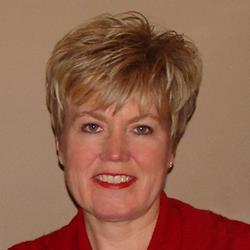
Executive Vice-President
Inclusion Canada
Bio: Krista Carr is a long-time advocate in the inclusion movement. She is the Executive Vice President (CEO) of Inclusion Canada, one of Canada’s 10 largest charitable organizations. Inclusion Canada is a national federation of 300 local and 13 Provincial/Territorial Associations working on behalf of approximately 1 million Canadians with a developmental disability and their families. Krista has over 25 years of experience in the non-profit sector as a champion of inclusion. Before joining Inclusion Canada, she was the Executive Director of the New Brunswick Association for Community Living (NBACL), a leading provincial non-profit organization that works with people with an intellectual disability and their families to accomplish the mission of full inclusion across the lifespan. In her current role, Krista is responsible for leading the Inclusion Canada National organization, the Inclusion Canada Foundation, Inclusive Education Canada (IEC). In addition to her extensive work portfolio, Krista sits on a number of provincial and national disability-related boards and committees. This includes the COVID Disability Advisory Group (CDAG), chaired by the honourable Carla Qualtrough, Minister of Employment and Disability Inclusion. Krista offers a unique perspective on disability-related supports and services, both nationally and internationally. Krista is a graduate of the University of New Brunswick (UNB) where she earned a Bachelor’s in Business Administration (BBA) and several diplomas in Human Resources and Management from UNB’s College of Extended Learning. She is fluently bilingual and works on behalf of CACL’s federation in both French and English. She currently resides in New Brunswick with her husband and two daughters.
Session: Disability Community Experiences in Relation to Work given COVID-19 Pandemic
Laura Cattari

Senior Policy Analyst
Hamilton Roundtable for Poverty Reduction
Bio: Laura Cattari is Senior Policy Analyst with the Hamilton Roundtable for Poverty Reduction Ms. Cattari has participated in both Canada’s 2017 review of CRPD and the previous Ontario government’s income security reform working group, and disability sub-committee, that co-designed “Income Security: Roadmap for Change”. Laura was also an Ontario Basic Income Pilot participant.
Session: Income Security for Persons with a Disability (Part 2)
Laura Celeste

Researcher
Social Research and Demonstration Corporation
Bio: Dr. Laura Celeste is an immigrant settler on the unceded territories of the Musqueam, Squamish and Tseil-Waututh Nations. She has dedicated her career to research on social inclusion, prejudice reduction, well-being, and support for members of disadvantaged and marginalized groups across a wide variety of contexts. She has demonstrated knowledge of social policy development as well as experience in diversity and inclusion across different sectors and brings a decade of experience from a variety of multi-disciplinary applied research and policy environments. By bringing together her experience conducting social interventions and her policy-driven research, Dr. Celeste’s work focuses on the applicability of rigorous research to real-world settings. Dr. Celeste is currently serving as researcher for the evaluation of the BC Partners in Workforce Innovation – Increasing Employment Through Inclusive Workplaces project which aims to enhance employer supports and supported workplace experiences for BC employers to achieve their diversity and inclusion (D&I) strategies by establishing more inclusive workplaces, recruiting career-focused talent, and improving overall outcomes for people with disabilities. Dr. Celeste holds a PhD in Social and Cultural Psychology from the University of Leuven, Belgium, a Master of Science in Applied Social Psychology from the University of Sussex, UK, and a Bachelor of Arts in Psychology and Italian Studies from the University of California, Santa Barbara, USA. She joined SRDC in 2019 and is based in its Vancouver office.
Session: Using the COVID-19 Recovery to Increase Employment of Persons with Disabilities
Tara Connolly
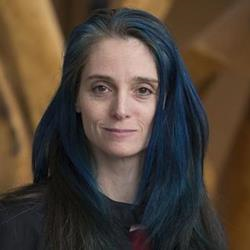
Assistant Director, Research & Development, READ Initiative
Carleton University
Bio: Tara is a transitions specialist who has some 20 years of experience working with and learning from adults and youth on the Autism spectrum. Her work has focused on facilitating neurodiverse thinkers to thrive on their own terms through co-creating meaningful transitions into and throughout adulthood, including employment. She has worked as a teacher, ASD consultant with the Children’s Hospital of Eastern Ontario, ASD content expert with the Public Health Agency of Canada, and counsellor in private practice. She was instrumental in designing the Transition Support Centre at Algonquin College, a service that supports the transitions of students on the spectrum into post-secondary environments. Tara earned a Master’s in Sociology and Equity Studies from University of Toronto and is a member of the Canadian Counselling and Psychotherapy Association and the College of Registered Psychotherapists.
Session: Report from projects funded by Accessibility Standards Canada
Stephanie Côté

Policy and Research Analyst
CASDA
Bio: Stephanie Côté (she/her), MA CYC, is a Research and Policy Analyst with the Canadian Autism Spectrum Disorder Alliance (CASDA). Stephanie’s work at CASDA has been informed by her academic focus on anti-oppressive practice in child and youth care and on the social model of disability as it relates to services for young Autistic people. Currently, her research looks at government employment programs that can be accessed by Autistic people, their employers, and supporting community organizations. The outcomes of this particular project will be delivered in the form of a resource package to the public and a policy brief to the federal government, and will contain recommendations for improving current programs. On a personal note, Stephanie’s experiences being raised in a neurodivergent family have contributed to her passion for her chosen field.
Lacey Croft

Research Assistant
University of Guelph
Bio: Lacey Croft is a PhD candidate in Sociology at York University. Starting from the standpoint of displaced workers, her dissertation research tells the story of workers’ struggles and strategies for dealing with chronic and traumatic stress following a factory closure. Lacey bridges her research on workplace stress with teaching, both as a sessional instructor in Labour Studies and trauma-informed yoga teacher.
Session: Using the COVID-19 Recovery to Increase Employment of Persons with Disabilities
D to H
Pinder DaSilva

Senior Director, Programs & Services
Abilities Centre
Bio: Pinder is an innovative, performance-driven management professional, with experience in leading multidisciplinary work teams in the delivery and execution of employment and social service programs across Ontario. With a strong passion for inclusion, Pinder has spent over 15 years developing and managing programs that serve the unique needs and abilities of individuals. Pinder values the importance of building strong and collaborative cross-sectoral partnerships to address accessibility, inclusion and diversity challenges facing communities across Ontario.
Michelle Demery

Chief Operating Officer
Accessibility Standards Canada
Bio: With over 20 years experience in the federal public service, Michelle Demery is the Chief Operating Officer of Accessibility Standards Canada. She was previously the Director of the Accessibility Implementation Division of the Accessibility Secretariat at Employment and Social Development Canada. Comptant plus de 20 ans d’expérience dans la fonction publique fédérale, Michelle Demery assume les fonctions de la Chef de l’exploitation chez Normes d’accessibilité Canada. Elle était auparavant la directrice de la Division de la mise en œuvre d’accessibilité du Secrétariat de l’accessibilité à Emploi et Développement social Canada.
Shawn de Raaf

Research Director
Social Research and Demonstration Corporation
Bio: Shawn de Raaf is a Research Director at the Social Research and Demonstration Corporation (SRDC). Mr. de Raaf has been a researcher with SRDC since 1998, covering a wide range of topics related to employment, training, income security and community economic development. From 2012 to 2017, he held the position of Research Coordinator for the BC Centre for Employment Excellence, a division of SRDC. He was responsible for overseeing the Centre’s research program to address the knowledge and development needs of the employment services sector and the employer community in BC on issues related to employment programs and practices. In his current role, Mr. de Raaf is leading the development, management and evaluation of large-scale projects that are examining innovative approaches to improving employment service delivery and enabling job seekers to find good jobs. His project portfolio involves research in a variety of thematic areas, including connecting people with disabilities to employment; supporting employers in achieving their diversity, equity and inclusion objectives; providing essential skills training to displaced workers and career development practitioners; and measuring the impact of social purpose organizations. Mr. de Raaf holds an MA in Public Administration from Carleton University. Originally from Ottawa, Mr. de Raaf has been based in SRDC’s Vancouver office since 2012.
Sessions:
Mathias Durnford

Director of Human Resources
Farnell Packaging Ltd.
Bio: Originally from a farming family in Lunenburg, NS., Mathias joined Farnell Packaging Limited in 2015 and holds the title of Director of Human Resources after completing a degree at Saint Mary’s University in Halifax, NS. Mathias’ industry backgrounds include manufacturing and construction, and if he is not spending time with family he can often be found holding a fishing rod.
- From Mathias Durnfold: https://www.farnell.ca/
Melissa Egan

National Lead, Episodic Disabilities
Realize
Bio: Melissa Egan is National Lead, Episodic Disabilities at Realize and has worked in the field of health and HIV for over 15 years as an educator and facilitator. Melissa’s experience includes front-line work at YouthCO, a peer-led agency working to reduce the impact of stigma related to HIV and Hep C. She spent eight years as Regional Educator for the Prairies with CATIE, an organization that works to strengthen Canada’s response to HIV and hepatitis C by bridging research and practice. Using her training in curriculum development and adult education, she also helped to create online learning courses about HIV and Hepatitis C, along with webinars on Episodic Disabilities and Employment. She has worked extensively with marginalized, LGBTQ, and Indigenous people developing and delivering workshops across Canada.
Sessions:
- Measuring Attitudes – Beyond the Business Case; Unpacking Artificial Intelligence Systems
- Strengthening Supports for Employees with Episodic Disabilities
Cailen Elliott
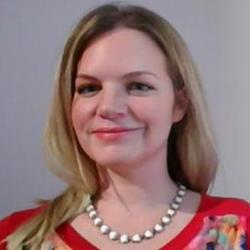
National Manager
CCRW
Bio: Cailen Elliott is a National Program Manager at the Canadian Council on Rehabilitation and Work, leading the Youth the Future Program operating in four cities in in Ontario as well as in Quebec and the Atlantic provinces. She has a strong interest in increasing disability confidence in employers across Canada, intersectional service delivery and in creating positive results for ambitious young jobseekers living with Disabilities.
Steven Estey

Consultant
Self-employed
Bio: Steven Estey is an International Human Rights consultant, with a focus on the human rights of people with disabilities. In June of 2020 Steven finished a very successful two-year term as interim National Coordinator of the Council of Canadians with Disabilities (CCD). He is also a former Human Rights Officer at Disabled Peoples’ International (DPI) a Canadian based NGO that has worked for over 30 years to advance the Human Rights of Persons with Disabilities around the world. Steven has travelled widely, for more than 25 years in many countries around the world. He has worked with Disabled Peoples' Organizations, Human Rights Institutions, Governments, Intergovernmental Organizations and United Nations Agencies to advance disability rights. Over time he has gained wide experience in the areas of international cooperation, economic development, human rights and disability. He has testified before several parliamentary committees in Canada and spoken on Human Rights and people with disabilities at the United Nations and in many countries around the world. From 2003, until the successful conclusion of the negotiations in 2006, Steven was advisor to the Canadian Government delegation to the United Nations, which drafted the new Convention on the Rights of People with Disabilities (CRPD). From 2007 until 2010 he led DPIs work to encourage Governments around the world to sign and ratify the CRPD. Since 2010, when he left DPI, Steven has devoted his time to projects strategically aimed at the effective implementation of the CRPD and related to the full realization of disability rights and the effective implementation of the CRPD around the world. Steven has a Bachelor’s degree in Philosophy from St. Francis Xavier and a Master’s in International Development Studies from Saint Mary’s; both Universities are in Nova Scotia.
Al Etmanski

Writer, Community Organizer, Disability Advocate
Bio: Al is a writer, community organizer and social entrepreneur. He’s been a parent activist in the disability movement since his daughter Liz was born. He led the closure of institutions, segregated schools, and sheltered workshops in BC and founded Canada’s first Family Support Institute. In 1989 he co-founded Planned Lifetime Advocacy Network with his wife Vickie Cammack. PLAN lobbied into existence the Registered Disability Savings Plan. Al is an Ashoka fellow and member of John McKnight’s Asset Based Community Development. He has received numerous awards including the Order of Canada, Order of BC and the Big Picture Award from his peers in the disability movement. Al’s latest book is The Power of Disability: 10 Lessons for Surviving, Thriving and Changing the World.
- Al’s latest book is The Power of Disability: 10 Lessons for Surviving, Thriving and Changing the World
- He blogs at aletmanski.com
Session: Keynote: Disrupting through Disability: Taking Charge of the Change
Alec Farquhar

Chair, Engagement
Centre for Research on Work Disability Policy
Bio: Alec Farquhar is a lawyer with a long career involved with disability issues. He is Chair, Engagement, for the Centre for Research in Work Disability Policy and member of the steering committee for Disability and Work Canada. Previously, Alec was Director of the Office of the Worker Adviser (OWA), an agency of the Ontario Ministry of Labour which advises and represents non-unionized workers in their workers’ compensation claims, return to work and appeals. Alec came to the OWA from the Occupational Health Clinics for Ontario Workers where he was Managing Director, and before that from the Ontario Ministry of Labour where he was the Director of the Occupational Health and Safety Branch.
Sessions:
- Using the COVID-19 Recovery to Increase Employment of Persons with Disabilities
- Workplace Guidance for COVID-19 Responses and Return to Work: A focus on the needs and experiences of workers with disabilities
- The Union Advantage in Strengthening Workplace Integration Programs for Persons with Disabilities – and the importance of Collective Bargaining
- Bridging the Gap between Workers with Disabilities and Employers who want an Inclusive Workplace but lack the Tools and Knowledge: The Inclusive Employment Advocacy Project
- How are we doing? Monitoring and Measurement of Progress on Implementing Policies and Programs
- DWC Steering Committee Reflections
Yutta Fricke
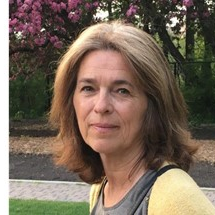
Executive Director
Disabilities Issue Office
Bio: Yutta Fricke is the Executive Director of the Disabilities Issues Office, which supports the Minister responsible for Accessibility, in the development and implementation of The Accessibility for Manitoba’s Act. Prior to joining Manitoba government in 2003, Yutta served for ten years as the Development Program Director for Disabled Peoples International. She earned a B.A. at the University of Winnipeg, and a Graduate Diploma in International Development and a Masters in Education and Social Change at the University of Ottawa.
Rebecca Gewurtz

Associate Professor
McMaster University
Bio: Dr. Gewurtz is an Associate Professor in the School of Rehabilitation Science. She completed a bachelor degree in Occupational Therapy at Queen's University, and a Master’s of Science and PhD at the University of Toronto in Rehabilitation Science. She also completed a collaborative program through the CHSRF/CIHR Ontario Training Centre in Health Services and Policy Research. Her master’s thesis was a qualitative study on how consumers of community mental health services come to understand their potential for work. Her doctoral dissertation explored the construction and implementation of changes to the employment support branch of the provincial disability benefit system, and its impact on employment services for people living with mental illness. She received funding for her graduate work from the Social Sciences and Humanities Research Council (SSHRC) of Canada and the Canadian Occupational Therapy Foundation. Dr. Gewurtz’s research interests revolve around employment, community participation, disability benefit systems and income security, with a focus on people living with mental illnesses and other disabilities. Her research program examines employment and community participation for people with disabilities, and the impact of social policy on how benefit systems and employment supports are experienced in practice. Rebecca is leading a SSHRC funded study examining policy strategies for improving employment opportunities for people with mental illness as they enter disability income support systems in Canada. She is also a co-investigator within the Centre for Research on Work Disability Policy (http://www.crwdp.ca/), and involved in projects exploring the experiences of injured workers, people with intermittent work capacity, and workplace accommodation policies and practices.
Monique Gignac
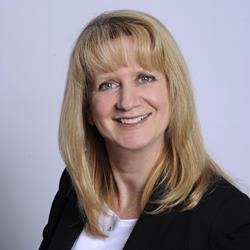
Scientific Co-Director & Senior Scientist
Institute for Work and Health
Bio: Dr. Monique Gignac is Scientific Co-Director and a Senior Scientist at the Institute for Work and Health and a Professor at the Dalla Lana School of Public Health at the University of Toronto. Dr. Gignac's research expertise is in the areas of health and social psychology. Her research examines psychosocial factors like stress, coping, and adaptation and their importance in understanding the impact of chronic conditions on the lives of adults across the life course. Of particular interest is research on workplace communication, privacy, support and accommodation needs among individuals living with chronic, episodic conditions.
Session: Strengthening Supports for Employees with Episodic Disabilities
Aryeh Gitterman

Adjunct Professor
Ryerson University
Bio: Dr. Aryeh Gitterman is currently an Adjunct Professor at Ryerson University where he shares his knowledge and experience in managing complex social policy issues. Aryeh was Assistant Deputy Minister for the Ontario Ministry of Children and Youth Services where he was responsible for policies and programs for children and youth on the Autism Spectrum, community-based mental health, and child protection. Prior to joining MCYS, Aryeh was ADM for Education where he was responsible for policies and programs for secondary school, teacher quality and turnaround schools.
Joseph Giulione

Director
L'Arrimage
Bio: Joseph Giulione has been working at L’Arrimage, a Supported Employment Service for people living with mental illness, since 1984 and has been the Director for the past 16 years. His main responsibilities focused on helping individuals find and keep jobs, working with job seekers, employers, mental health professionals, families and government agencies. He has also been a member of the board of the Regroupement des Organismes Spécialisés pour l’Emploi des Personnes Handicapées (ROSEPH), which represents 24 supported employment services for people with disabilities operating throughout Quebec, since 2006. As president, he sits on different government committees helping determine policies to facilitate employment integration for people with disabilities.
Sessions:
Lorraine Godden
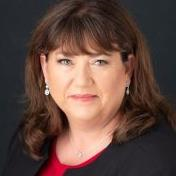
Instructor
Carleton University
Bio: Lorraine Godden is an Instructor II at Carleton University where she teaches career development, employability, and career management skills courses in the Faculty of Public Affairs. Her research is rooted in understanding how educators interpret policy and curriculum to make sense of career development and employability, work-integrated learning, adult education, school-to-work transition, and other educational multidisciplinary and public policies. Trained in England and Canada, and formerly an adjunct professor at Queen’s, Trent, Yorkville, and Suffolk Universities, Dr. Godden has taught many generations of students in educational policy, educational and organizational leadership, business and marketing management, and professional development. Dr. Godden’s research has been published in national and international journals and conferences, and she has successfully completed many collaborative, empirical, and community-based research projects that have informed theory, policy, and practice-based initiatives. Her research has been funded by SSHRC, the Ontario Government, the Motorola Institute, and the Imperial Oil Foundation, and she currently serves on the Board of Directors of the Canadian Educational Research Institute for Counselling (CERIC), the Board of Directors of the Asia Pacific Career Development Association, and was a Member of Team Canada for the International Centre for Career Development and Public Policy (2017-2019). Dr. Godden is currently completing a three-year evaluation of the Ontario Youth Job Connection Program with colleagues from Queen’s University, and a comparative study of educational programming that supports effective transitions from school-to-work with Dr. Atsushi Okabe of Sapporo University, Japan.
Session: Report from projects funded by Accessibility Standards Canada
Maureen Haan
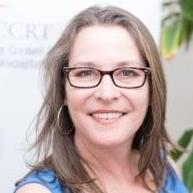
President & CEO
CCRW
Bio: Maureen Haan has been the President & CEO of CCRW since 2012. CCRW is the only national organization with the sole vision of equitable and meaningful employment for people with disabilities, in operation for over 40 years. CCRW provides direct services focusing on employment engagement through CCRW best practices and proven results. Maureen has been very active in the cross-disability sector, currently focusing on employment issues. She has been involved with numerous committees and groups that increase awareness of and access for the disability sector and the Deaf community, including involvement with Civil Society on the UN Convention of Rights for Persons with Disabilities (CRPD), and as a Board member on the Accessibility Standards Canada. Maureen was appointed to the COVID-19 Disability Advisory Group (CDAG) during the COVID-19 pandemic and continues to serve in the Minister Disability Advisory Group (MDAG).
Sessions:
- Equity, Diversity and Inclusion at Canada Post
- The Community Journey to Work: Unpacking Indigenous, Newcomer and Mental Illness Experiences
- Measuring Attitudes – Beyond the Business Case; Unpacking Artificial Intelligence Systems
- Keynote: Equity, Diversity and Inclusion at Canada Post
- Closing the Autism Employment Gap in Canada
- How are we doing? Monitoring and Measurement of Progress on Implementing Policies and Programs
- DWC Steering Committee Reflections
Jillian Hardie
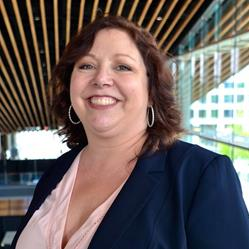
Executive Director/CEO
Challenge Disability Resource Group and Career Industries
Bio: Jillian Hardie is the Executive Director/CEO of Challenge Disability Resource Group and Career Industries in Whitehorse, Yukon. She has a professional background in Special Education and Human Resources and Labour Relations, and has been in her position for 4 years. As the Executive Director of Yukon’s Largest NGO, Jillian overseas the operation of 2 employment programs, 3 residential programs, 2 social enterprises and is in the process of constructing the Cornerstone Affordable and Supportive Housing Development, a 46 unit mixed use building. With over 30 years in the disability sector, Jillian has a foundational believe that safe, respectable, stable and affordable housing is the cornerstone to physical and financial security while moving forward on the employment continuum.
Session: How are we doing? Monitoring and Measurement of Progress on Implementing Policies and Programs
Elisabeth Harrison

Research Associate
Guelph University
Bio: Elisabeth Harrison is a PhD Candidate in Critical Disability Studies at York University. Her dissertation research uses narrative and digital storytelling methods to illuminate trans, genderqueer, gender nonconforming and nonbinary people’s experiences with mental health care in Ontario. She has taught courses in women and gender studies, psychology, and education. Her research interests are in Mad studies, fat studies, and intersectionality theory.
Session: Using the COVID-19 Recovery to Increase Employment of Persons with Disabilities
Kathy Hawkins

Manager
InclusionNL: Employer Support Services
Bio: Kathy Hawkins is the Manager of InclusionNL: Employer Supports and Services Program of Empower, The Disability Resource Centre. As Manager, Kathy provide supports and services to employers interested in creating more inclusive workplace environments for current and new employees with multiple types of disabilities. In this capacity she advises employers and businesses on all facets of creating barrier-free work environments & building accessibility confidence including; recruitment & hiring, accessibility reviews of physical locations, reasonable workplace adjustments & employee accommodations, as well as staff training & professional development. Kathy also provides expertise to business interested in creating accessible websites, technical applications and mobile apps and holds professional certification in website accessibility from the University of South Australia. Kathy is currently the President of the DisAbled Women’s Network of Canada, sits on the Board of the NL Association of the Deaf, and is a member of the International Association of Accessibility Professionals.
Sessions:
Roberta Hoogervorst
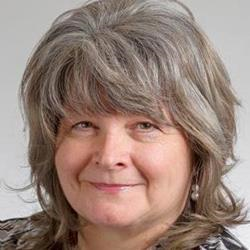
Union Rep
UFCW832
Bio: Roberta joined the staff of UFCW Local 832 in January of 2013. Before that she worked at Sobeys for 20 years and at Loblaw for 8 years before that. Being a union member while working at IGA and Superstore gives Roberta the experience of relating to the needs of the membership. She was not only a member, she was also a union activist and served as Shop Steward, Health and Safety Committee member and sat on the negotiating committees. As the parent of a child on the Autism Spectrum, Roberta understands the many challenges persons with disabilities face. Roberta welcomes the opportunity to assist the members of Local 832 in her positions as Union Representative and Retail Coordinator.
Evelyn Huntjens
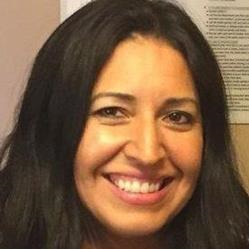
National Coordinator
BCANDS
Bio: Evelyn Huntjens is a member of the Xeni Gwet’in – Tsilhqot’in People of the Nemiah Nation located in the heart of BC. Prior to her work with BCANDS she has a wealth of experience in the financial services industry working as a financial planner. Her focus over her career has been educating her clients to manage their finances and helping them answer the question “Why is money important to me?” Evelyn currently works as the National Coordinator for the BC Aboriginal Network on Disability Society. She started her career with BCANDS managing the Indigenous RDSP Navigation program. The program navigates disabled individuals and their families through the process of qualifying for and opening the Registered Disability Savings Plan. Her focus now, as the National Coordinator, is to work with provincial, territorial, federal governments, Indigenous leadership and NGO’s to expand the Society’s Indigenous disability services across Canada. Her passion to see BCANDS clients succeed drives her advocacy for and promotion of BCANDS programs and services.
Sessions:
I to L
Sultana Jahangir

Executive Director
South Asian Women's Rights Organization Inc
Bio: Sultana Jahangir has been a social service worker and social justice advocate for 25 years in Bangladesh, United States, and Canada. After immigrating to Canada she lived in Toronto’s East Danforth area, which has a high concentration of low-income immigrant families, mostly Bangladeshi immigrants. Sultana led immigrant women from the area to create their own organization, South Asian Women’s Rights Organization (SAWRO). Since 2007, she has served as SAWRO’s Executive Director. Under her leadership, SAWRO has developed effective programs to reduce community poverty, and empower women and girls. Sultana has a Master’s Degree in Political and Social Science from Dhaka University and has enhanced her skills through additional education in the United States and Canada. Sultana gained experience with the movement for empowerment of women at the national and international level. She participated in the 2015-16 sessions of the Canadian Women’s Foundation Leadership Institute (CWFLI) hosted by the Coady Institute in Halifax, Nova Scotia. In 2016, she was selected to represent the CWFLI alumni at the Association for Women's Rights in Development (AWID) Conference in Brazil where women from around the world shared and explored best practices on advocating and building women’s leadership across regions and sectors. Recently, Sultana was nominated by COSTI Immigrant Services and South Asian Women’s Rights Organization (SAWRO) to work on local project “Enhanced Democratic Participation of Immigrant Women” aimed to reach equitable employment access under Advance Gender Equality project funded by Status of the Women Canada (SWC).As a leader of the Gender Equality Network Canada (GENC), Sultana brings significant experience working for women’s equality in her community across a wide range of fields.
Social media:
- Twitter: @sawro_org
- facebook: @SouthAsianWomen'sRightsOrganization
Session: The Community Journey to Work: Unpacking Indigenous, Newcomer and Mental Illness Experiences
Roxana Jahani Aval

Chairperson
CCD
Bio: As a 2nd year law student, Roxana Jahani Aval is currently entering the school-to-work transition stage of her education. Roxana currently attends the University of Windsor in the Single Juris Doctorate program. Roxana attended York University and received two Bachelor of Arts Degrees in Psychology and Human Rights and Equity Studies where she concentrated on Disability Rights and Legal Institutions. Roxana is the Chairperson for the Council of Canadians with Disabilities, and the Past-Chair of the National Educational Association of Disabled Students. Roxana will be speaking to the school-to-work transition from her lived experience as a law student with a disability, but also the general experience of attempting to find work and transition into a career as a student with a disability. Additionally, Roxana will be highlighting the short comings of the transition specifically to law school and accessibility needs in the OCI process. Roxana hopes to work for the Ministry of the Attorney General as an Associate Crown Attorney in Ontario after she graduates.
Arif Jetha

Scientist
Institute for Work & Health
Bio: Dr. Arif Jetha is a scientist at the Institute for Work & Health. He is also an assistant professor at the University of Toronto’s Dalla Lana School of Public Health. He earned his PhD in behavioural sciences and public health at the University of Toronto, and an MSc in social psychology from the London School of Economics and Political Science. Dr. Jetha’s research aims at understanding how the future of work will impact the employment of people living with disabling conditions and other vulnerable groups. He is specifically interested in understanding early labour market experiences of millennials and their impact on key transitions across life.
- Project webpage: Future-focused job accommodation practices for the school-to-work transition (website)
Sessions:
- Promoting Inclusion in the Workplace and in the Research Process
- Report from projects funded by Accessibility Standards Canada
- School-to-Work Transitions (Part 2) - A Multidimensional View of the School-to-Work Transitions of Young People with Disabilities: Highlighting Opportunities for Policy and Practice
Meghan Kelly
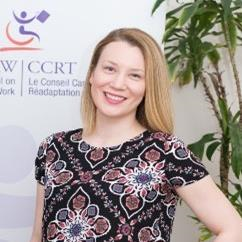
National Manager
CCRW
Bio: Meghan Kelly is the National Manager, Business Solutions of The Canadian Council on Rehabilitation and Work (CCRW). She has been working with CCRW since 2013 and has been involved on varying levels of the organizations programs and services. Meghan’s most recent area of focus at CCRW has been concentrated in expanding CCRW’s Business Solutions department and its suite of customized professional business services. In her role Meghan connects with Business across the country, uncovers their specific need as it relates to accessibility, disability and work, and develops customized CCRW services that will support them in hiring and retaining persons with disabilities. Meghan currently works out of the CCRW Office in St. John’s Newfoundland.
Karen Kelsey
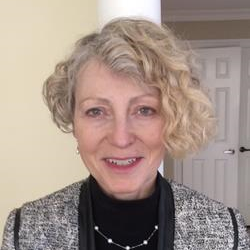
Relationship Manager, Canada
Lime Connect
Bio: Karen Kelsey is Lime Connect's Relationship Manager in Canada, where she is responsible for managing and building the corporate and post-secondary educational institution partnerships integral to the success of Lime Connect in the Canadian marketplace. Karen also focuses on attracting high-potential students and alumni to grow The Lime Network in Canada, and she acts as the lead and coordinator for the active Canadian volunteer base - Lime Connect Ambassadors. Ms. Kelsey brings many years of relationship management, human resources management and people management experience in the financial services sector to her role.
Session: Mentorship, Advancement and Promotion of Persons with Disabilities
Tanya Kett
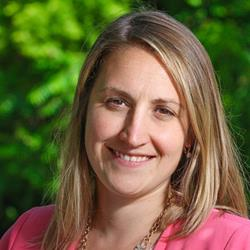
Career Counsellor
McMaster University
Bio: Counselling students in career exploration, job search strategies and further education options through a student-centred approach to bring clarity and instill optimism and confidence. Careers are a journey, not a destination; each step is a valuable learning opportunity to build skills and resilience. Skilled in Career Development, Further Education, Workshop Development and Facilitation, Mock Interviews (professional school and employment), Employment Coaching, and Career Assessment including Personality Dimensions, Strong Interest Inventory and Myers-Briggs Type Indicator. Student-centered, community-minded, and advocate of lifelong learning.
.
Pamela Lahey

Research Advisor
ESDC
Bio: Pam Lahey is a research advisor with the Social Research Division in the Social Policy and Service Branch directorate at Employment and Social Development Canada. She works on disability and accessibility matters of concern to all Canadians, including persons with disabilities. Pam received her PhD in 2018 in Rehabilitation Science from McMaster University. She is a past student fellow with CRWDP. Her professional experience as a social policy analyst allowed her to provide input to the Ontario government on such matters as income security, employment policy, and health care needs for marginalized populations. Pam has authored and co-authored a number of papers examining these issues in more depth.
Session: Disability Community Experiences in Relation to Work given COVID-19 Pandemic
Jenna Lambert

Student Advisor, ACT to Employ
Carleton University
Bio: Jenna completed her Master of Social Work at Carleton University and works as the Student Advisor for ACT to Employ. The ACT to Employ Team works with students who identify as having disabilities to create meaningful, paid experiential learning placements - opportunities for students to gain employability skills and meaningful employment experiences while they complete their post-secondary degree at Carleton University. As a person with a disability, Jenna understands the complexities often involved with navigating the workforce for persons with disabilities and works to create inclusive opportunities through education and community engagement.
Léo Lavoie

Directeur
CFACQ Montréal
Bio: From my first job, I got involved in the union to allow my colleagues to work in a healthy, safe and respectful environment. From this first experience, I wanted to maintain this approach, then of equality, today of equity. With a degree in occupational health & safety and project management, my progress towards the management of the training center was naturally supported by a vision of diversity and inclusion of the leaders of the TUAC Local 500.
Tamira Loewen
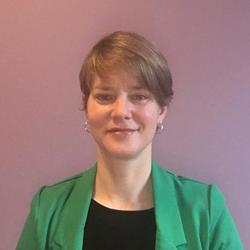
Senior Risk Manager
Bio: Tamira is an accomplished Risk Management specialist with over 15 years of experience leading and delivering effective challenge to drive change. Tamira has had a breadth of risk management roles both in Banking and Insurance. Tamira re-joined TD Bank in Market Risk Management five years ago and currently provides oversight over the Bank's Non-Trading Market Risk. Tamira is an inclusive leader who encourages diverse perspectives and approaches, she is active in Diversity and Inclusion committees at work and is a Director on the Board of the Empowerment Council (EC), which is a voice for clients/survivors of mental health and addiction services, primarily of CAMH. EC membership, board and staff are all current or ex-clients of mental health or addiction services.
LinkedIN: http://www.linkedin.com/in/tamira-loewen
Session: Tools for Return to Work with Mental Health Challenges
Emmanuelle Lopez

Human Rights, Equity & Diversity Coordinator
UFCW Canada
Bio: Emmanuelle is a Toronto, Ontario - based labour advocate with experience in the areas of human rights, labour rights and strategic programming in equity streams. Emmanuelle situates her work within the traditional territory of the Anishnawbe, Haudenosaune, the Mississaugas of the Credit First Nation and many other nations whose land was occupied due to settler colonialism. Working at the national level, Emmanuelle is UFCW Canada’s Human Rights, Equity and Diversity Co-ordinator. She is also an Executive Committee member of UFCW OUTreach, Chair of the UFCW Canada Human Rights, Equity and Diversity Committee and the UFCW Canada Indigenous Sub-Committee. Emmanuelle is a passionate equity rights advocate and has years of experience representing injured workers and persons with disabilities in the Workers Compensation system, government tribunals and workplace disputes. Emmanuelle’s work involves engaging an intersectional framework in the provision of worker supports and she believes in the power of working alongside community expertise to affect social change. She speaks English, Spanish, Portuguese and Conversational French. Migrating to Canada as a refugee in 1988, she also has a long history of working with immigrant and migrant communities in creating workplace inclusion measures.
Stephen Lytton
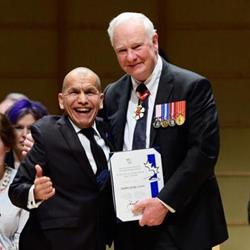
Board President
British Columbia Aboriginal Network on Disability Society (BCANDS)
Bio: Stephen is a member of the Nicomen Indian Band within the Nlaka’pamux First Nation. Stephen lives with a disability (cerebral palsy), and is a residential school survivor having spent 13 years in the St. George’s Indian Residential School starting when he was a young child. An accomplished actor, writer and advocate, Stephen has presented across Canada to various groups regarding his personal experiences in residential school as an Indigenous person living with a disability with his story and experienced featured in short films. Stephen currently serves as Board President for the British Columbia Aboriginal Network on Disability Society (BCANDS), a provincial Indigenous health and disability organization which celebrated its 29th anniversary this year and which has received international recognition for its work within the Indigenous disability sector. In 2016 Stephen received the Caring Canadian Award from the Governor General of Canada for his community service and work in advancing work on Indigenous issues in Canada.
Session:
M to P
Michael MacDonald

Manager, Health Services
Jazz Aviation
Bio: As a person succeeding with a disability, Michael has focused his career on supporting other individuals with disabilities. With a broad background that includes working for insurers, schools, and employers, he currently works with Jazz’s employees as they balance the needs of a safety critical work environment with their own unique health challenges and abilities. As a member of the technical committee, he recently helped shape the new national standard on Work Disability Prevention via the Canadian Standards Association.
From Michael MacDonald: https://www.linkedin.com/in/michaelmacd
Ellen MacEachen
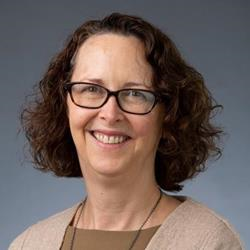
Professor and Interim Director
University of Waterloo
Bio: Ellen MacEachen’s research examines return to work, vulnerable workers, and the growth of precarious employment. Her current studies examine how gig and low wage employed workers are navigating work in the context of COVID-19. Her 2019 edited book, “The Science and Politics of Work Disability Prevention” (Routledge) provides an international picture of social security systems, work and health. Her Mental Health and Return to Work Guide was released in 2020 and is available at Mental Health and Return to Work Guide (PDF)
Session: Tools for Return to Work with Mental Health Challenges
Steve Mantis

Chair - Research Action Committee
Ontario Network of Injured Workers Groups
Bio: Steve was injured in an industrial accident in 1978 losing his left arm. He went through the Workers Compensation system and saw first-hand how it failed for many injured workers. It became apparent that many workers with a permanent disability became chronically unemployed and lived a life in poverty and depression. He has been active ever since working to improve the lives of injured and disabled workers across Canada. Steve is the Founding member of the Thunder Bay & District Injured Workers Support Group, the Ontario Network of Injured Workers Groups and the Canadian Injured Workers Alliance. He is presently serving as Chair of the Research Action Committee of the Ontario Network of Injured Workers Groups (ONIWG) and sits on the Executive Committee of the Centre for Research on Work Disability Policy.
Sessions:
- Income Security for Persons with a Disability (Part 1)
- Tools for Return to Work with Mental Health Challenges
- Lessons and challenges from the Review of the WCB in British Columbia: The New Directions Report 2019
- Income Security for Persons with a Disability (Part 2)
- DWC Steering Committee Reflections
Janet Mantler

Assistant Professor, Psychology Department
Carleton University
Bio: My research interests are in Organizational Psychology—the study of people at work. I care deeply about how workplaces can be improved in order to promote employee health and organizational well-being. My current research areas are: Career transitions When university students graduate and enter the workforce, they often retain their identity as a student for a while. I am investigating the conditions that influence graduates to develop an identity as someone who works. I’m also interested in transitions at mid-career. After some time in the workforce, people often feel discontented – what does it take to help these people move into a different and more satisfying career? Mental health in the workplace I’m working with a pan-Canadian team of researchers and organizational partners to understand when people take a leave of absence from work for mental health issues and what facilitates their return to work. We are approaching this research through a lens of intersectionality and examining mental health and leaves of absence for seven professions across Canada. Implicit bias in the workplace Recently my students and I have undertaken a series of studies to investigate the effect of implicit bias on hiring female leaders. We found that front line staff tend to prefer to work for female leaders, yet women are less likely to be promoted to leadership roles. We are interested in interventions to improve gender representation in leadership.
Session: Report from projects funded by Accessibility Standards Canada
Jasmine Marchant

Inclusive Workforce Consultant
BC Partners in Workforce Innovation
Bio: Jasmine has over 20 years of Human Resources experience in the Hospitality and Tourism Sector in Canada. She currently works as an Inclusive Workforce Consultant with BC Partners in Workforce Innovation, providing strategic recommendations, training and recruitment services around inclusive hiring of people with disabilities/diverse abilities. As the Director of Human Resources at Parq Vancouver (and Edgewater Casino) from 2014 to 2019, she brought to the role a wealth of knowledge and success in human resources strategy, recruiting, training, labour relations, and performance management. Jasmine led the Parq Vancouver bargaining committee in the 2018 collective bargaining with Unifor. In addition, she was responsible for establishing the D&I hiring standards and practices for the organization. These standards defined the culture for the entire resort including Hotel, Food and Beverage, and Casino; 2000 employees. In addition, Jasmine facilitated training - Parq CARES – Connect and Care for our Associates, Guest and Community for the entire property. Valuing education as much as professional experience, she earned a Bachelor of Hospitality Management from Vancouver Community College, a Bachelor of Arts in Business Administration and Management from Capilano University, and a Human Resources Management Certificate from British Columbia Institute of Technology.
Session: Driving Change: Inclusive Hiring During a Pandemic
Tom McDowell

Professor
Ryerson University
Bio: Tom McDowell, Ph.D. is an instructor with the Department of Politics and Public Administration at Ryerson University. His research work explores the institutional and policy impacts of neoliberalism. Tom is a lead author of Southern Ontario’s Basic Income Experience, which reported the impacts of the prematurely cancelled Ontario Basic Income Pilot in the Hamilton region. He is co-editor of Rising Up: The Fight for Living Wage Work in Canada due to be published March 2021 and has recently published articles in Studies in Political Economy, Critique, and the Canadian Review of Sociology. He is also Book Reviews Editor for Alternate Routes.
- Southern Ontario 2019 Basic Income Experience Report (website), by Mohammad Ferdosi (McMaster University), Tom McDowell (Ryerson University) Wayne Lewchuk (McMaster University) Stephanie Ross (McMaster University)
- The Experiences of Social Assistance Recipients on the Ontario Basic Income Pilot (website), by Tom McDowell and Mohammad Ferdosi, November 5, 2020
Session: Income Security for Persons with a Disability (Part 1)
Reno Michel Hache

Project Manager
Canadian Association for Supported employment [CASE]
Bio: Senior instructional designer, Reno Michel collaborated with supported employment specialists in authoring the HIRE for TALENT employer disability awareness toolkit. A published author, PMP certified, Master of Adult Education, Reno Michel facilitated competency-based initiatives incorporating concepts of Essential Skills and the Blueprint for Life-Work Designs for the workplace integration of youths at risk. Reno Michel currently lives in Bathurst, NB.
Session: Mentorship, Advancement and Promotion of Persons with Disabilities
Jamie Millar-Dixon
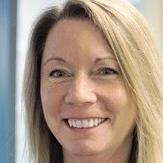
Inclusive Workforce Consultant
BC Partners in Workforce Innovation
Bio: Jamie is the Principal of MacLeod Silver HR Business Partners based in Vancouver, BC and an Inclusive Workforce Consultant with BC Partners in Workforce Innovation. Now in it’s 7th year, BC WiN is a unique recruitment service that helps BC employers connect to the talent pool of people with disabilities/diverse abilities. Jamie has an extensive Human Resources background of over 30 years, specializing in workforce diversity and inclusion, recruitment, training and HR start up. Her experience spans multiple industries. She has developed and delivered diversity training programs for both public and private sector employers. Recently, she co-authored Untapped Talent B2B Guide on Innovative Recruitment and Retention, a resource for employers on how to easily adapt each stage in the recruitment, onboarding and retention process to be able to hire more people with disabilities in their business.
Session: Driving Change: Inclusive Hiring During a Pandemic
Josée Moreau
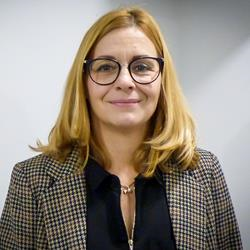
Directrice générale
Action Main d’Oeuvre
Bio: A graduate of Laval University, Ms. Josée Moreau, holds a bachelor's degree in psychology and a master's degree in guidance and a member of the Order of Guidance Counselors of Quebec. She has over 25 years of experience in the broad field of human resource management. Her journey began as a career development and succession advisor in the telecommunications sector for more than 7 years. She has over 15 years of experience in the health and social services network, specifically in rehabilitation and youth protection missions. She combined the roles of organizational development advisor, head of operational services and director of human resources. This allowed him to develop a broader understanding of the needs of the most vulnerable clienteles with multiple needs in all their spheres of life. For more than 3 years, she has been managing director at Action main-d'oeuvre! Her motto: Change one life at a time! Diplômé de l’Université Laval, Madame Josée Moreau, est détentrice d’un baccalauréat en psychologie et d’une maîtrise en orientation et membre de l’ordre des conseillers et conseillères en orientation du Québec. Elle possède plus de 25 ans d’expérience dans le vaste domaine de la gestion des ressources humaine. Son parcours a débuté à titre de conseillère en développement des carrières et de la relève dans le secteur des télécommunications pendant plus de 7 ans. Elle possède plus de 15 ans ans d’expérience dans le réseau de la santé et des services sociaux, spécifiquement dans les missions de réadaptation et de protection de la jeunesse. Elle y a cumulé les rôles de conseillère en développement organisationnel, de chef de services opérationnels et de directrice des ressources humaines. Ce qui lui a permis de développer une compréhension plus large des besoins des clientèles plus vulnérables et présentant de multiples besoins dans toutes leurs sphères de vie. Depuis plus de 3 ans, elle assume les fonctions de directrice générale chez Action main-d’œuvre! Sa devise : Changer une vie à la fois !
Jannet Nguyen

Advisor Equity, Diversity and Inclusion
Canada Post
Bio: Jannet Nguyen the Advisor Equity, Diversity and Inclusion at Canada Post and previously the Manager of National Programs and Talent Acquisition Strategy. In this newly created role, she is responsible for implementing short, medium and long-term strategies for cultural and organizational change to drive improvements in equity and enhanced diversity and inclusion across the business. This work also includes leading the establishment of an Equity, Diversity and Inclusion Committee with a mandate to co-create a multi-year strategy for Canada Post in collaboration with all our unions and executive leadership. Prior to joining the national postal service, Jannet’s experience includes working in Canada, the United States, and the United Kingdom for dynamic Fortune 100 organizations and top tier consultancies to lead HR processes and strategies. She has led change management initiatives to align business priorities with labour needs, and has focused on optimizing candidate experience, and collaborating with leaders in the industry. Her decision to join one of Canada’s largest and longest standing brands was a result of a deep desire to have a positive social impact working with a company that touches the lives of every single Canadian. At a time of immense change, Canada Post is investing in strategic initiatives to transform and innovate to better serve our customers and be more reflective on Canadian society and values.
Session: Keynote: Equity, Diversity and Inclusion at Canada Post
Rachelle Nimegeers

Employment Engagement Coordinator
British Columbia Aboriginal Network on Disability Society
Bio: Rachelle Nimegeers is the Employment Engagement Coordinator with the British Columbia Aboriginal Network on Disability Society. Rachelle has worked within the Human Service sector both in Saskatchewan and British Columbia in the areas immigration, Indigenous disability and services to refugees. Passionate about Indigenous rights and policy in Canada, Rachelle continues to be a student of Human Justice with plans to compete her Masters Degree in the future.
Session: The Community Journey to Work: Unpacking Indigenous, Newcomer and Mental Illness Experiences
Kathy Padkapayeva

National Manager
Centre for Research on Work Disability Policy
Bio: Kathy Padkapayeva is the National Manager at the Centre for Research on Work Disability Policy (CRWDP). She holds a PhD equivalent degree (Candidate of Sciences, CSc) in Philosophy from the Belarusian State University, Belarus. Her research interests are in the area of labour-market engagement and workplace accommodations of people who experience disability, and in promoting the gender perspective in the study of health & employment. “I'm honoured to be part of the DWC Steering Committee, supporting the development of a vision and strategy for the future, focused on increasing employment of persons with disabilities. I believe that partnerships among different stakeholder groups are key in reaching the goal of equal employment opportunities for all.”
Session: Gender-Based Analysis Plus – Opportunities Fund
Jim Parker

Labour Relations officer WCB Advocacy
BC Nurses' Union
Bio: Jim Parker has worked as a worker representative in the workers’ compensation claims and appeal system for over 25 years. Jim has been active in the development and consultation on OH&S regulation and compensation policy as well as OH&S education and training. After working on New Direction: WCB Review 2019 Jim has returned to representation on claims appeals and advocacy for compensation law and policy changes.
Janet Patterson
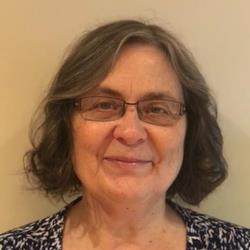
Retired lawyer
Bio: Janet Patterson was a labour lawyer in B.C. when in 2001, she was appointed as Appeal Commissioner at the Workers͛ Compensation Board. From 2003-2005, she was a Vice Chair and Deputy Registrar at the Workers’ Compensation Appeal Tribunal (WCAT), after which she joined the law firm of Rush Crane Guenther and represented injured workers in a variety of compensation and legal proceedings. After retiring in December 2018, Janet was appointed to conduct a targeted Review of the B.C. compensation system.
- New Directions: Report of the Workers' Compensation Board Review, 2019 (PDF) by Janet Patterson, October 30, 2019
- Read the addendum (PDF) to the report including acknowledgements of presenters and workers' voices
Barry Pervin

Trustee
Bloorview School Authority
Bio: Barry Pervin has many years of experience of policy development and program design in the areas of education, postsecondary education, and skills training. Mr. Pervin was Assistant Deputy Minister for the Ministry of Education in the government of Ontario and championed a number of initiatives to support successful learning outcomes for students and promote inclusive learning environments in schools. Mr. Pervin is a trustee and former Chair of the board of trustees of the Bloorview School Authority, an educational facility that provides innovative school programs to children and youth with special needs.
Michael Prince
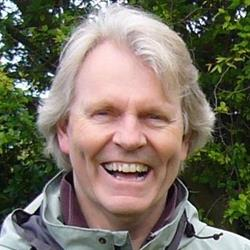
Landsdowne Professor of Social Policy
University of Victoria
Bio: Michael J. Prince is the Lansdowne Professor of Social Policy at the University of Victoria. A long time community activist and volunteer, Prince is currently a member of the Canadian Disability Advisory Group to the federal Minister of Disability and Inclusion.
Sessions:
- Income Security for Persons with a Disability (Part 2)
- Closing Plenary: In The Works: A Dynamic Strategy
Laurie Proulx

Vice President
Canadian Arthritis Patient Alliance
Bio: Laurie Proulx has lived with Juvenile Rheumatoid Arthritis for over 25 years and it is her experiences that led to her involvement in the Canadian Arthritis Patient Alliance (CAPA), a grass-roots and patient driven and managed organization where she is Vice-President. Through her involvement with CAPA, she advocates for patient-centred health care policies and practices for people living with rheumatic diseases. She has worked as a patient partner in a variety of settings including health research, health policy, workplace research, and medical education
Session: Promoting Inclusion in the Workplace and in the Research Process
Q to S
Carla Qualtrough
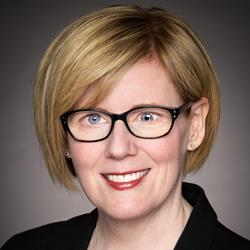
Minister of Employment, Workforce Development and Disability Inclusion
Government of Canada
Bio: A successful lawyer, dedicated volunteer, and Paralympic swimmer, the Honourable Carla Qualtrough’s commitment to addressing inequality and championing diversity makes her a strong voice in government. Carla was re-elected as the Member of Parliament for Delta, BC on October 21st 2019. She served as the Minister of Sport and Persons with Disabilities and the Minister of Public Services and Procurement and Accessibility. Today, she serves as the Minister of Employment, Workforce Development and Disability Inclusion. Before entering politics, Carla was a successful human rights lawyer who practiced at both the federal and provincial levels. She also chaired the Minister’s Council on Employment and Accessibility in British Columbia, was an adjudicator with the Workers’ Compensation Appeals Tribunal, and is a past President of the Canadian Paralympic Committee. Throughout the COVID-19 pandemic, Minister Qualtrough has been a leader within the Government of Canada’s emergency response. She led the creation and implementation of the historic Canada Emergency Response Benefit (CERB), the Canada Emergency Student Benefit (CESB), a one-time disability payment to Canadians with disabilities, and made significant improvements and investments in the Temporary Foreign Worker Program. Minister Qualtrough continues her work to provide comprehensive support to workers, students and persons with disabilities whose lives have been significantly impacted by this pandemic.
Bob Rae
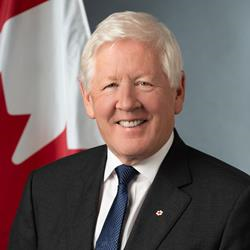
Ambassador and Permanent Representative to the United Nations
Government of Canada
Bio: Bob Rae is the Ambassador and Permanent Representative of Canada to the United Nations in New York. Mr. Rae served as Premier of Ontario from 1990-1995, and interim Leader of the Liberal Party of Canada from 2011-2013. He was elected to federal and provincial parliaments 11 times between 1978 and 2013. Mr. Rae received his Honours B.A. in Modern History from the University of Toronto, an M.Phil in Politics as a Rhodes Scholar at Oxford University, and graduated from the University of Toronto Faculty of Law in 1977. He was named a Queen’s Counsel in 1984. As a lawyer in private practice, Mr. Rae led the restructuring of the Canadian Red Cross, the Toronto Symphony Orchestra, and chaired the board of the Royal Conservatory of Music. He also wrote “Lessons to be Learned” on the Air India bombing, and “Ontario a Leader in Learning” - a study of the Ontario higher education system. He was also named to the Security and Intelligence Review Committee by then Prime Minister Chrétien. Mr. Rae’s return to Parliament for the constituency of Toronto Centre in 2008 led to his appointment as Foreign Affairs spokesman for his party, and to his election as interim Leader in 2011. Between 2013 and 2020 he taught law and public policy at the University of Toronto, and was a partner and senior counsel to the law firm OKT LLP, specializing in indigenous law and constitutional issues. Mr. Rae is a Fellow of the Forum of Federations (an organization he co-founded in the 1990’s), Massey College, and the Raoul Wallenberg Centre for Human Rights. He served as the Chief Negotiator for the 9 First Nations that are members of the Matawa Tribal Council in Northern Ontario between 2013 and 2018. In October 2017, Mr. Rae was appointed as Canada’s Special Envoy to Myanmar. In this role, he engaged in diplomatic efforts to address the crisis in the country’s Rakhine State and wrote the report “Tell Them We’re Human” in 2018. In March 2020, he was named by Prime Minister Trudeau to be Canada’s Special Envoy on Humanitarian and Refugee Issues. This led to his report “A Global Pandemic Requires a Global Response”, which was made public shortly before his appointment as Ambassador to the UN. Bob Rae is a Privy Councillor, a Companion of the Order of Canada, a member of the Order of Ontario, and has numerous awards and honorary degrees from institutions in Canada and around the world. In addition to several government reports, he is the author of five books. Along with music, reading, and writing, he loves tennis, golf, and fishing. He is married to Arlene Perly Rae, writer and public advocate on issues affecting women and children. They have three daughters and five grandchildren.
Mary Reid

Vice Chairperson
Accessibility Standards Canada
Bio: Mary Reid is Vice Chairperson of Accessibility Standards Canada. She is personally and professionally committed to equity, social justice and inclusion. For over thirty-five years, Mary’s professional and personal life has focused on removing and preventing barriers so that persons with disabilities have equal access. She has worked at a senior level for community organizations, municipal and provincial governments. Mary is experienced in fostering systemic change through community engagement, service design and policy development. Mary lives in Portugal Cove, Newfoundland and Labrador.
Session: Major Initiatives from Selected Provinces
Carla Rice

Professor
University of Guelph
Bio: Carla Rice is the principal investigator and co-director of the From Invisibility to Inclusion project. She is a Canada Research Chair in Care, Gender, and Relationships and a Full Professor in the Family Relations and Applied Nutrition department at the University of Guelph. As Founder and Academic Director of Re•Vision: The Centre for Art and Social Justice and the Revisioning Differences Media Arts Laboratory (REDLAB), Dr. Rice seeks to explore how communities can use arts-informed research to advance social inclusion and justice by challenging stereotypes.
Session: Using the COVID-19 Recovery to Increase Employment of Persons with Disabilities
Minette Samaroo
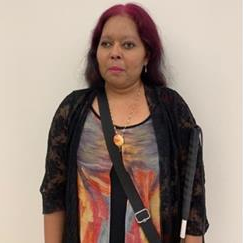
National Vice-President and President, Toronto Chapter
Alliance for Equality of Blind Canadians
Bio: Minette Samaroo was born in Guyana, South America, and migrated to Canada in September 2014. As the President of AEBC Toronto Chapter, Minette is actively advocating for social change for persons with disabilities. One of the areas she focuses on is equitable employment for persons with disabilities. In 2019, Minette led the development and execution of The Disability Advantage Program – a Training Program for employers highlighting the benefits of hiring and working with persons with disabilities. To learn more about this program, please go to: http://www.blindcanadians.ca/inclusiveemployment. In addition to being the current president of The Toronto Chapter, Minette is also the Project Lead for The Current COVID-19 Relief Project for persons with disabilities that AEBC is doing. Minette also serves as co-chair for The Accessible Housing Network and The Assistive Device Program Working Committee.
Dan Samosh

Postdoctoral Research Fellow
Institute for Work and Health, Centre for Research on Work Disability Policy, University of Toronto
Bio: Dan Samosh is a CRWDP funded Postdoctoral Research Fellow at the Centre for Industrial Relations and Human Resources at the University of Toronto and the Institute for Work and Health. He received his PhD in Organizational Behaviour from Queen’s University in 2019. Dan uses qualitative and quantitative methods to explore research questions on the career advancement, leadership, and workplace inclusion of persons with disabilities.
Session: Mentorship, Advancement and Promotion of Persons with Disabilities
Mirvat Sanaallah

Project Officer
Carleton University
Bio: I am the Project Officer at “Career Transitions and Accessibility in the Federal Public Service”. I appreciate the opportunity given to me to participate in such a promising project that aims to improve workplaces’ accessibility and hence leading to a more inclusive work environment by studying the barriers and facilitators at key career transitions of persons with disabilities in the Canadian federal public service. Being part of the project and part of READ department at Carleton University, which is well known department for initiating different projects concerning accessibility nationwide while connecting people from different backgrounds (academic, community based, non-profit, corporations, government and more), make me feel honored to play a small role in achieving a more inclusive environment because everyone deserves equal opportunity to thrive and progress in our society.
Session: Report from projects funded by Accessibility Standards Canada
Ron Saunders

Adjunct Scientist
Institute for Work & Health
Bio: Dr. Ron Saunders is a consultant in knowledge transfer and exchange (KTE). He retired at the end of 2017 as Director, KTE and Senior Scientist at the Institute for Work & Health (IWH) but currently holds an appointment as Adjunct Scientist with IWH. Before joining IWH, Ron was Vice-President, Research, at Canadian Policy Research Networks. Prior to that, he spent 17 years in the Ontario Public Service, most notably as Assistant Deputy Minister of Policy, Communications and Labour Management Services in the Ministry of Labour. Ron also spent time in academia, teaching at the University of Toronto and the Queen’s University School of Policy Studies.
Sessions:
- Major Initiatives from Selected Provinces
- Promoting Inclusion in the Workplace and in the Research Process
- Report from projects funded by Accessibility Standards Canada
- Strengthening Supports for Employees with Episodic Disabilities
- DWC Steering Committee Reflections
Linda Schweitzer
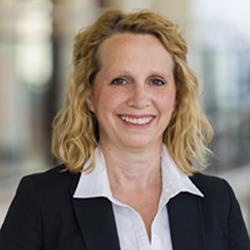
Professor, Sprott, School of Business
Carleton University
Bio: Dr. Linda Schweitzer is a highly-distinguished and awarded Professor of Management at the Sprott School of Business. Dr. Schweitzer’s overarching research program examines the “modern career,” and her research is aimed to add clarity and robustness to the career journey—one that paints a truer picture of the realities one faces through their life. She is committed to see a shift in traditional societal thinking around careers as being associated with the “mountain we climb” to instead, describe the journey as the “stones we step” to get to the other side of the creek. “It’s not a destination; it’s a journey.” Dr. Schweitzer and her co-authors, Sean Lyons and Eddy S. Ng, have been working under a substantial SSHRC grant to study modern careers and have recently published a book: Generational Career Shifts: How Matures, Boomers, Gen Xers, and Millennials View Work (Emerald Publishing, 2019). From an in-depth study, they developed a very impressive and substantive contribution to the knowledge and understanding of how generations differ in career expectations, values, and attitudes in the workplace. Their work is helping organizations understand generational differences to better recruit, motivate, and retain different age cohorts—to better understand just how generations are different from one another to better manage their age-diverse workforce. Dr. Schweitzer is also making major contributions to the understanding of generational diversity in the workforce including gender-wage gap; the representation of women in STEM; and diversity in management. And, with thirteen years in her field, Dr. Schweizer has been an expert go-to, frequently giving presentations and invited talks, and is a prominent member of several committees and associations, both within and outside of the Sprott School. Moreover, she is an exceptional leader; acting as Interim Dean from 2017-2019, and remains an outstanding leader in teaching with a pedagogical approach that fosters the love of learning, and a passion for helping students feel prepared for where ever life may take them.
Session: Report from projects funded by Accessibility Standards Canada
Erin Selby
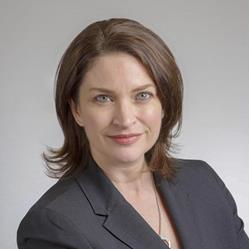
Director Education and Training
UFCW Local 832
Bio: Erin is a communicator. She has a degree in communications and has worked as a TV Anchor/ Reporter, MLA and Minister of both Health and Advanced Education for Manitoba. Erin is currently the Director of Education and Training for UFCW Local 832 where she uses her communication skills and political experience to enable members to reach their full potential. She believes education empowers people to find their voice and recognize the influence they have in their workplace, community and across the province. She is also hearing impaired and while she champions the wearing of masks, she’s looking forward to being able to lip read again soon!
Renata Sharkey

Policy Analyst
ESDC
Bio: The Opportunities Fund for Persons with Disabilities program is a $40M per year contribution program that assists persons with disabilities who have limited or no attachment to the labour market prepare for, obtain and maintain employment or self-employment. The Opportunities Fund also works with employers to prepare workplaces for the integration of persons with disabilities and to raise the profile of persons with disabilities in the employer community. The program’s responsibilities include oversight of the performance measurement framework, providing strategic program policy advice on issues related to the labour market participation of persons with disabilities, undertaking forward-looking policy development to identify and address future programming needs, developing strategic partnerships, management of internal and external consultations and priority setting to launch the Call for Proposals. The program is led by Employment and Social Development Canada staff members, consisting of Khaddouj Souaid (Manager), Thomas Bergbusch (Senior Policy Analyst) and Renata Sharkey (Senior Policy Analyst), who are dedicated to increasing the participation of persons with disabilities in the workforce.
Session: Gender-Based Analysis Plus – Opportunities Fund
Tova Sherman
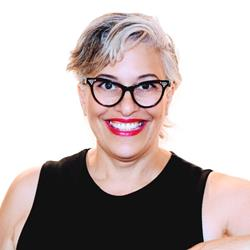
CEO
reachAbility
Bio: Tova Sherman is a Canadian thought leader and trailblazer in diversity, inclusion and accessibility programs and services. She is an award winning CEO (reachAbility), a highly sought after speaker (Ted Talks), an expert spokesperson on diversity and inclusion, and an inclusion trainer and consultant. Tova manages a team of 20 staff and consultants at the Halifax reachAbility office who provide programs and services that propel inclusion for all in three streams: for individuals, for employers, and for community engagement. Contact Tova@reachability.org to learn more.
- From Tova Sherman:
- Website: www.reachability.org;
- Facebook: /reachability.org;
- Insta: @reachabilityns;
- Twitter: @ability_reach
Poster Presentation: Top Tips to Becoming a Disability-Confident Leader in Your Workplace
Catherine Shortall
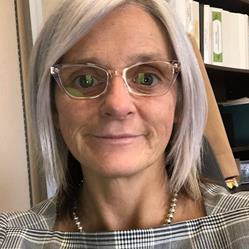
Acting Director
Dept of Children, Seniors & Social Development
Bio: Catherine Shortall is currently working with Government of NL with the Disability Policy Office. She has spent most of her career working in evolving program areas, pilot projects and emergent initiatives both in the community and government. Catherine has a passion for creating processes and safe space for sharing and merging of ideas and perspectives with a personal commitment in work and life that promotes diversity and inclusion. Catherine’s practice is informed by both psychology and social work and has a keen interest in organizational learning and change management reflective of her education in leadership studies.
Session: Major Initiatives from Selected Provinces
Sandra Small
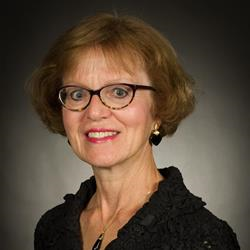
Professor
Memorial University
Bio: Dr. Sandra Small is a professor in the Faculty of Nursing, Memorial University, St. John’s, Newfoundland and Labrador. She and her team have research experience concerning living with and managing chronic physical illnesses and work disability policy. Furthermore, Dr. Small has expertise in various qualitative research methodologies and qualitative systematic reviews.
Session: Promoting Inclusion in the Workplace and in the Research Process
David Soltis

Director, Talent Acquisition and Employment Policy
Canada Post
Bio: David Soltis is an innovative, results oriented leader with visible achievements in the IT, healthcare and education sectors. On the educational front, David has served as Vice Principal for Heritage Academy of Learning Excellence and has led projects as a consultant for the Library of Parliament, NAV Canada, Calian and Gordon Group. As a manager at the Ontario Telemedicine Network, David collaborated with various stakeholders to establish training programs for doctors, nurses, allied healthcare professionals and patients. He also led the deployment and delivery of a provincial webcasting and webconferencing service. David is currently Director, Talent Acquisition and Employee Policy, at Canada Post and is a key resource supporting strategic recruitment initiatives, adoption of the applicant tracking system, equity, diversity and inclusion, employee recognition and employment policies across the enterprise. David holds degrees from the University of Western Ontario, University of Ottawa and the University of Toronto. He is also a Certified Training and Development Professional (CTDP), Project Management Professional (PMP), ROI Professional (CRP), SCRUM Product Owner, PROSCI Change Management and member of the Ontario College of Teachers. David completed his Executive MBA at the University of Ottawa, Telfer School of Management. David is currently a Member of the Awards Committee for the Institute for Performance and Learning.
Session: Keynote: Equity, Diversity and Inclusion at Canada Post
Khaddouj Souaid
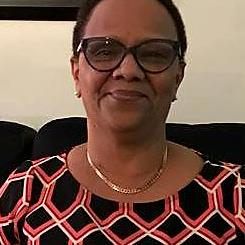
Gestionnaire - Manager, ESDC-EDSC
ESDC
Bio: The Opportunities Fund for Persons with Disabilities program is a $40M per year contribution program that assists persons with disabilities who have limited or no attachment to the labour market prepare for, obtain and maintain employment or self-employment. The Opportunities Fund also works with employers to prepare workplaces for the integration of persons with disabilities and to raise the profile of persons with disabilities in the employer community. The program’s responsibilities include oversight of the performance measurement framework, providing strategic program policy advice on issues related to the labour market participation of persons with disabilities, undertaking forward-looking policy development to identify and address future programming needs, developing strategic partnerships, management of internal and external consultations and priority setting to launch the Call for Proposals. The program is led by Employment and Social Development Canada staff members, consisting of Khaddouj Souaid (Manager), Thomas Bergbusch (Senior Policy Analyst) and Renata Sharkey (Senior Policy Analyst), who are dedicated to increasing the participation of persons with disabilities in the workforce.
Session: Gender-Based Analysis Plus – Opportunities Fund
Louise St-Arnaud
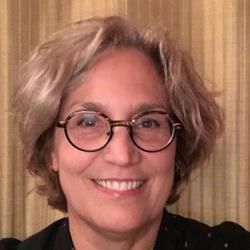
Professor
University Laval
Bio: Louise St-Arnaud is a psychologist, career counsellor and full professor at Laval University. Her research work is characterized by the design and implementation of research projects in close collaboration with the practice environment. Several of her works have focused on the study of integration, job retention and return-to-work processes following a mental health problem. She has also been conducting research in the field of work psychodynamics and mental health in the workplace for several years.
- Guide to an Integrated Practices Program for Supporting a Return to Work and Promoting Job Retention (PDF) by Louise St-Arnaud and Mariéve Pelletier, Université Laval
Session: Tools for Return to Work with Mental Health Challenges
John Stapleton
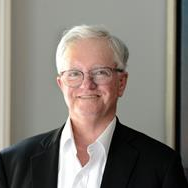
Principal
Open Policy
Bio: John Stapleton worked for the Ontario Government in the Ministry of Community and Social Services for 28 years in the areas of social assistance policy and operations. During his early career, John was senior policy advisor to the Social Assistance Review Committee. His more recent government work concerned the implementation of the National Child Benefit. He is a Commissioner with the Ontario Soldiers’ Aid Commission and is a volunteer with West Neighbourhood House and WoodGreen Community Services of Toronto
- https://www.openpolicyontario.com
- A new Canadian Disability Benefit modelled after the GIS? What does that mean? (website) Open Policy Ontario, John Stapleton, September 30, 2020.
Session: Income Security for Persons with a Disability (Part 1)
Jessica Stark
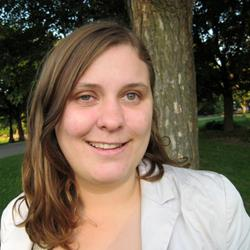
Policy Officer, Strategic Integration and Corporate Affairs (SICA) Directorate
Employment and Social Development Canada (ESDC)
Bio: The Government of Canada has been committed to using Gender Based Analysis Plus (GBA+) - an analytical process to assess the potential impacts of policies, programs, services, and other initiatives on diverse groups of individuals - since 1995. In alignment with this commitment, Employment and Social Development Canada strives to provide inclusive, accessible and responsive programs for all Canadians, including underrepresented groups, ensuring to equip them with the skills and competencies needed to fully participate in the labour market and succeed in a changing Canadian economy. Jessica Stark is a policy officer specialized in GBA+ analysis who supports skills and employment programs, including the Opportunities Fund for Persons with Disabilities, in strengthening their GBA+ capacity to better measure, monitor and address gender disparity and promote access of underrepresented groups (e.g. women, persons with a disability, Indigenous peoples, visible minorities, newcomers, etc.) across skills programs. This involves capturing and utilizing the right data to measure outcomes, as well as building the internal analytical capacity for staff to analyze and apply the data. This GBA+ work helps to understand the barriers faced by different populations in accessing skills programs, which interventions are most effective in addressing these barriers, and how to sustain capacity to continue to measure and monitor the effectiveness of labour market programming in the long-term.
Session: Gender-Based Analysis Plus – Opportunities Fund
Mahadeo Sukhai

Head of Research and Chief Accessibility Officer
CNIB
Bio: Dr. Mahadeo Sukhai is the world’s first congenitally blind biomedical research scientist. Mahadeo is the Head of Research and Chief Accessibility Officer for the CNIB (Canadian National Institute for the Blind), having previously served as a research scientist at the University Health Network in Toronto. Dr. Sukhai is the Principal Investigator for and co-author of "Creating a Culture of Accessibility in the Sciences," a book based on his groundbreaking work on access to science within higher education, and serves as the principal investigator for national projects to understand the student experience for persons with disabilities, and to examine accessibility and inclusion within science education and healthcare.
Sessions:
- Disability Community Experiences in Relation to Work given COVID-19 Pandemic
- Mentorship, Advancement and Promotion of Persons with Disabilities
- Report from projects funded by Accessibility Standards Canada
- Opening Remarks (MC) - Day 4
- Closing for the Day (MC) - Day 4
T to Z
Anna-Karina Tabunar

President, Founder
Talent Untapped Group
Bio: Anna-Karina Tabunar is an award-winning communicator, strategist and community advocate. Her consulting agency Talent Untapped Group is on a mission to cultivate more diverse and inclusive workplaces. Anna-Karina and her team direct their decades of expertise in storytelling, strategic communications and change management, as well as lived experience, to help organizations embed Inclusion into all areas of their business. Anna-Karina was the host of Canada in Perspective, an internationally acclaimed TV series about issues surrounding disability and ageing. She produced and directed the documentary Talent Untapped about the invisible talent pool of people with disabilities. The sequel More Talent Untapped is a new podcast about strength in difference and the lessons from the original innovators and disruptors - people who manage disabilities.
Session: Keynote: Disrupting through Disability: Taking Charge of the Change
Susanna Tam

Organizational Development Consultant
ICBC
Bio: Susanna is a lawyer and Diversity, Equity and Inclusion (DEI) leader with over 14 years of experience in creating innovative strategies and initiatives that promote inclusive workplaces. She is currently an organizational development consultant specializing in DEI with the Insurance Corporation of British Columbia (ICBC), focused on enhancing structural inclusion by assessing and improving talent management processes for an organization of over 5000 employees. Before joining ICBC, Susanna served as the director of inclusion for a national law firm, and as the diversity policy lawyer for the provincial regulator of the legal profession.
Session: Driving Change: Inclusive Hiring During a Pandemic
Steven Tobin

Executive Director
Labour Market Information Council
Bio: Steven Tobin is the Executive Director of the Labour Market Information Council a not-for-profit organization whose mandate is to ensure Canadians, stakeholders and policy makers have the necessary information and insights to succeed in a changing, dynamic world of work. Before joining LMIC, Steven previously held positions at the OECD, the International Labour Organization as well as the federal and provincial levels of government.
Session: How are we doing? Monitoring and Measurement of Progress on Implementing Policies and Programs
Vanessa Tomas

PhD Student
University of Toronto
Bio: Vanessa Tomas, M.Sc., is a second year Ph.D. student in the Rehabilitation Science Institute and Collaborative Program in Neuroscience at the University of Toronto (U of T). She is conducting her Ph.D. research at Holland Bloorview Kids Rehabilitation Hospital, in Toronto, Ontario, working under the supervision of Dr. Sally Lindsay in TRAIL (TRansitions And Inclusive environments Lab). Vanessa’s research interests include Knowledge Translation (KT)/Implementation Science, patient engagement, youth and young adults with autism and other neurodevelopmental conditions, participation and inclusion, and employment / the transition to adulthood. For Vanessa’s doctoral thesis, she aims to explore, together with youth on the autism spectrum, experiences and related needs surrounding the complex disability disclosure process and requests for workplace accommodations to create tangible KT outputs. Vanessa also actively engages as a research trainee with additional organizations such as Kids Brain Health Network, CanChild Centre for Childhood Disability Research, and the Canadian Autism Spectrum Disorder Alliance to collaborate on and support a variety of initiatives and projects.
Session: Closing the Autism Employment Gap in Canada
Emile Tompa

Senior Scientist
Institute for Work & Health
Bio: Dr. Emile Tompa is a senior scientist at the Institute for Work & Health. He holds appointments as an Associate Professor in the Department of Economics at McMaster University and as an Assistant Professor at the Dalla Lana School of Public Health at the University of Toronto. He also has an appointment at Pacific Coast University where he is area lead for research and sits on the curriculum and ethics committees. Tompa is Director of the Centre for Research on Work Disability Policy, an eight-year, pan-Canadian initiative funded by a Social Sciences and Humanities Research Council Partnership Grant. Tompa is a labour and health economist with an MBA from the University of British Columbia, an MA in economics from the University of Toronto, and a PhD in economics from McMaster University. Tompa is an associate editor for BMC Public Health, and is on the editorial boards of the Journal of Occupational Rehabilitation and the Scandinavian Journal of Work Environment and Health. He also sits on the National Stakeholder Advisory Panel of the Canadian Labour-Market Information Council. Tompa’s research interests include the consequences of occupational health and safety system design on the health and well-being of individuals and populations, the economic evaluation of workplace interventions for improving the health and well-being of workers, the economic burden of occupational injury and illness, and the analysis of disability policy systems.
Sessions:
- Disability Community Experiences in Relation to Work given COVID-19 Pandemic
- School-to-Work Transitions (Part 1): Promising Practices to Support Transitions into the Labour-Market
- Workplace Guidance for COVID-19 Responses and Return to Work: A focus on the needs and experiences of workers with disabilities
- Financial Incentives for Employers to Promote Hiring and Retaining People with Disabilities: When and how do they work?
- Mentorship, Advancement and Promotion of Persons with Disabilities
- DWC Steering Committee Reflections
Sherri Torjman
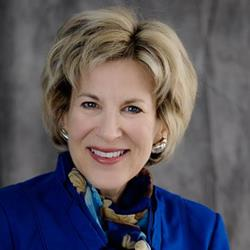
Vice-Chair
Disability Advisory Committee (reporting to the Minister of National Revenue)
Bio: Sherri Torjman is a social policy consultant and policy associate with Maytree. She is Vice-Chair of the Disability Advisory Committee reporting to the Minister of National Revenue. Sherri was Vice-President of the Caledon Institute of Social Policy from 1992 to 2017. She was a member of the Leader’s Economic Advisory Council and has worked for the National Council of Welfare, House of Commons Committee on the Disabled and the House Committee on Child Care. She co-chaired the Technical Advisory Committee on Tax Measures for Persons with Disabilities, reporting to the Minister of Finance and Minister of National Revenue. In 1988, Sherri wrote the book Income Insecurity on the disability income system in Canada. She has written many other reports on disability including Dismantling the Welfare Wall for Persons with Disabilities (2017). She was co-author of the report A Basic Income Plan for Canadians with Severe Disabilities published in 2010. Sherri has received numerous awards for her policy work including the Senate 150 Anniversary Medal, Queen Elizabeth II Diamond Jubilee Medal, Champion of Human Services Award from the Ontario Municipal Social Services Association and Top 25 Canadians Award from the Canadian Association of Retired Persons.
- IRIS Releases A New Policy Primer On The Federal Government’s Plan To Introduce The ‘Canadian Disability Benefit' (website), by Sherri Torjman, November 4, 2020.
Session: Income Security for Persons with a Disability (Part 1)
Magda Trespalacios Rubio

Organizational Development Consultant
ICBC
Bio: Magda Trespalacios is an Organizational Development professional and a Diversity, Equity and Inclusion champion. Over the past 10 years, she has supported private and public organizations in improving their effectiveness and the experiences of their employees, by helping define strategies and tactics that align with their vision and core values. Magda and her family chose Canada as their home in 2003. Since their arrival, Magda has experienced both the joys and challenges of immigrating to a new country. Based on her experiences, she truly believes in the power that diversity brings to teams, organizations and countries when everyone’s commonalities are acknowledged and their uniqueness celebrated. Currently, Magda serves as a Diversity, Equity and Inclusion specialist at Insurance Corporation of British Columbia (ICBC) and has focused her efforts in promoting a workplace environment where everyone is recognized and valued. Magda’s professional background is in Business Administration and her areas of strength are leadership development, employee learning, coaching and mentoring. She is also a Chartered Human Resources Professional (CPHR) and a Certified Organizational Coach.
Session: Driving Change: Inclusive Hiring During a Pandemic
Jutta Treviranus
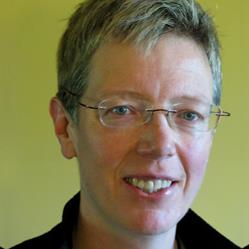
Director & Professor
Inclusive Design Research Centre, OCAD University
Bio: Jutta Treviranus is the Director of the Inclusive Design Research Centre (IDRC) and professor in the faculty of Design at OCAD University in Toronto Jutta established the IDRC in 1993 as the nexus of a growing global community that proactively works to ensure that our digitally transformed and globally connected society is designed inclusively. She also heads the Inclusive Design Institute, a multi-university regional centre of expertise Jutta founded an innovative graduate program in inclusive design at OCAD University. She leads international multi-partner research networks that have created broadly implemented innovations that support digital equity. She has played a leading role in developing accessibility legislation, standards and specifications internationally (including W3C WAI ATAG, IMS AccessForAll, ISO 24751, and AODA Information and Communication, ). She serves on many advisory bodies globally to provide expertise in smart cities and inclusive infrastructure (e.g., Waterfront Toronto, London Olympics, NYC Libraries, World Economic Forum, etc.). Jutta’s work has been attributed as the impetus for corporate adoption of more inclusive practices in large enterprise companies such as Microsoft and Adobe.
From Jutta Treviranus:
- We Count! | Jutta Treviranus. The Walrus Talks Inclusion (video)
- We Count: Creating an inclusive data ecosystem (website)
- DEEP2020: Designing Enabling Economies and Policies (website)
Session: Report from projects funded by Accessibility Standards Canada
Boris Vukovic

Director, READ Initiative
Carleton University
Bio: Research Interests: My research interests are framed broadly around accessibility with specific focus on nonvisible disabilities, including mental health, executive functioning disorders, and learning disabilities. I am committed to transformative research that is participatory and collaborative, impactful in the real world, and action-oriented. I look for collaborations that emphasize applied research and knowledge mobilization with equitable input from people who the research concerns the most. At the same time, theory and knowledge building with philosophical undertones is my guilty pleasure, but always anchored in a desire to drive change, improvement, and problem solving in our communities, societies, and environments. Accessibility Research and practice in accessibility and disabilities is a personal and professional investment, in particular related to nonvisible disabilities. I see social participation for persons with visible and nonvisible disabilities as a matter relevant to a large proportion of humanity. It goes beyond disability labels and encompasses many more people who have lived experience of disability; families, partners, friends and colleagues. Accessibility as an emerging transdisciplinary, solution-focused field also benefits our diverse society as a whole through removal of barriers, better design, more inclusive practices, and social innovation.
Session: Report from projects funded by Accessibility Standards Canada
Corey Walker

Project Coordinator
Sinneave Family Foundation
Bio: Corey Walker is an autistic self-advocate from Prince George, BC. He was diagnosed with Asperger's in 2001, while in his early 20's, and since then he has made it his life's mission to empower autistics to live the best life possible, and to educate others about what makes autistics such wonderful, unique people with proper supports. Corey currently serves as the Project Lead for Sinneave Family Foundation on the Success in the Workplace: Strategies from Autistic Employees toolkit project. He also works for the Canucks Autism Network as the Hub and Spoke Coordinator, which is part of Project Relay, a Ready, Willing and Able project focused on developing innovative methods of supporting autistic and intellectually disabled job seekers and employees during COVID-19. Corey holds a BA in English and History from the University of Northern BC, and a Provincial Instructor Diploma from Vancouver Community College, and is available for hire as a dynamic public speaker.
Session: Closing the Autism Employment Gap in Canada
Jeff Willbond

Director General
Proactive Compliance, Canadian Human Rights Commission
Bio: Jeff Willbond, Director General, Proactive Compliance, Canadian Human Rights Commission. With over 25 years of diverse experience in the areas of policy development, human resources, communications, and community development, Jeff is committed to the areas of social development and inclusion. He has served as a media advisor to CTV news on the subject matter of disability rights and accessibility for Ontario. His professional work experience has been in the areas of employment, social services, health care, housing and human resources. He is also active in his community, and volunteers his time to serve on several boards and advisory committees. As a consultant, Jeff was responsible for the City of Ottawa’s 2004/2005 Municipal Accessibility Policy Plan and was appointed to Ontario’s Accessibility Standards Advisory Committee to assist the Ministry of Community and Social Services to implement accessibility standards. In 2006, he received one of Ottawa’s Community Builder Awards for advancing accessibility for people with disabilities. Following his career in municipal and provincial government, Jeff joined the Federal Public Service in 2006 and has worked for different departments. Most recently he was responsible for leading the development and implementation of an accessibility strategy at Canada Post Corporation. Jeff has now joined the team at the Canadian Human Rights Commission at an historic time in Canada, in which we are seeing a transformational shift in approach to diversity, disability inclusion, accessibility, pay equity and gender equality. As the Commission’s first Director General of Proactive Compliance, Jeff will lead the implementation of their expanded mandate.
Session: How are we doing? Monitoring and Measurement of Progress on Implementing Policies and Programs
Judith Wright
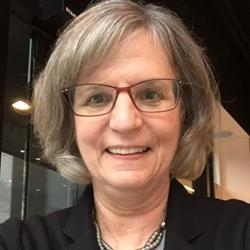
Principal
B.G.& E. Consulting
Bio: Judith Wright has over 25 years of experience in policy and program design related to social services, education and health with a particular focus on integrating services to improve outcomes in disadvantaged communities. Ms. Wright was Deputy Minister for the Ministry of Children and Youth Services in the Government of Ontario with responsibility for reforms to programs for children and youth with disabling conditions. Ms. Wright was also the Deputy Minister for the Ministry of Health Promotion and the Pan/Para Pan Am Games. She was also an Assistant Deputy Minister in a number of other portfolios. She is currently a Principal with B.G.& E. Consulting providing advice to universities, government clients and philanthropic organizations.
Tammy Yates
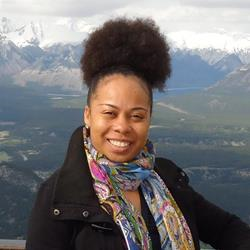
Executive Director
Realize
Bio: Tammy C. Yates is the Executive Director of Realize, which hosts the Secretariat of the National Episodic Disabilities Forum. In 2015, she became the first black female Executive Director of a national organization in Canada’s HIV response, as well as among Canada’s national disability organizations. She has worked for over fifteen years in the field of program management. Prior to joining Realize, Tammy was the National Program Manager of the United Nations Population Fund (UNFPA) Trinidad & Tobago Branch Office. She has extensive experience in Gender & Development and Sexual & Reproductive Health, including HIV/AIDS, having worked previously as a Program Officer with the Secretariat of the Caribbean Regional Network of Persons Living With HIV (CRN+) and serving as Chair of the Gender Theme Group of the United Nations System in Trinidad & Tobago. She is a graduate of Wolfson College, Cambridge University, England and the University of the West Indies, St. Augustine, Trinidad.
Sessions:
Hassan Yussuff
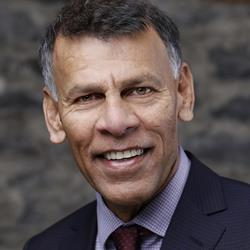
President
Canadian Labour Congress
Bio: Hassan Yussuff is the first person of colour to lead Canada’s union movement. After serving 15 years as Executive Vice-President and Secretary-Treasurer of the Canadian Labour Congress, Hassan was elected President in 2014. Over his two terms as President, Hassan has led Canada’s unions in a major campaign to improve workplace rights for everyone and dramatically transform the way Canadians view the labour movement. Hassan has made Canada’s social programs a key focus of his presidency. Under his leadership, the Canada Pension Plan was expanded for the first time in history. In 2017, Hassan launched the CLC’s national pharmacare campaign calling for universal prescription drug coverage for all Canadians. Making workplaces and public spaces safer has been another key priority for Hassan. He has championed legislation to grant paid leave for survivors of domestic violence, address harassment and violence in the workplace, enshrine rights for migrant workers, and enact a national ban on asbestos. Hassan’s advocacy has also earned him an international platform as President of the Trade Union Confederation of the Americas, from which he continues to champion equity and workers’ rights around the world, challenge climate change and strive for a better world for future generations. Shortly after immigrating from Guyana, Hassan became a union member in 1976. He was elected union chairperson in his workplace at the age of 19. He climbed through the ranks of the Canadian Auto Workers (CAW) union before becoming the organization’s first Human Rights Director. This lifelong commitment to human rights has defined his career in the labour movement.
Session: Joint Keynote: A fireside chat with Perrin Beatty and Hassan Yussuf
Christine Zannier

Project Coordinator, Secretary
AEBC
Bio: Christine Zannier is a disability inclusion consultant with both corporate and community work experience. She has developed and implemented diversity and inclusion projects in employment and talent management for a Tier 1 bank. As an active member on the executive team for the Alliance for Equality of Blind Canadians, she has led consultations, focus groups and events to promote equal opportunities for people with disabilities. For more information visit her on LinkedIn


